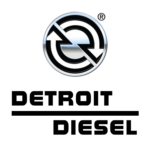$0.00
11
People watching this product now!
Payment Methods:


 Truck Software
Truck Software

 DTC Trucks
DTC Trucks






















 PACCAR
PACCAR

 Truck Software
Truck Software

 DTC Trucks
DTC Trucks






















 PACCAR
PACCAR
Diagnostic link training is essential for automotive technicians. It provides the necessary skills to diagnose and troubleshoot modern vehicle systems effectively. This training focuses on tools like Detroit Diesel Diagnostic Link 8. It enhances understanding of engine performance, module programming, and fault diagnosis.
Table of Contents
ToggleEffective diagnostic link training is essential for enhancing skills and knowledge in modern automotive technology. This training enables technicians to utilize diagnostic tools effectively, understand vehicle systems, and solve complex issues.
At the core of diagnostic link training are several fundamental concepts that every technician must grasp. These concepts include:
Training in automotive diagnostics plays a pivotal role in a technician’s career and the automotive industry’s overall efficiency. Here are some key reasons for its importance:
The training on Detroit Diesel Diagnostic Link is essential for technicians working with modern diesel engines. This software provides comprehensive tools necessary for effective diagnostics, module programming, and efficient troubleshooting.
Detroit Diagnostic Link 8 (DL8) stands out due to its user-friendly interface and powerful diagnostic capabilities. Key features include:
Engine performance analysis with DL8 is vital for maintaining operational efficiency. Technicians can leverage this tool to gather critical data regarding engine functionality, identifying areas needing improvement. The software helps in tracking performance metrics, ensuring compliance with regulations, and enhancing overall vehicle reliability.
Understanding how to program modules and adjust ECU parameters is critical for technicians. The DL8 simplifies this process by offering intuitive controls and detailed instructions.
Obtaining ECU information is a foundational step in diagnostics. The DL8 allows technicians to quickly identify which ECUs are present in the vehicle, facilitating the troubleshooting process by targeting specific modules.
This feature enables the alteration of parameters to meet specific operational needs. With DL8, technicians can read existing settings. Moreover, modifications can be made to optimize vehicle performance or adapt to changes in regulations, such as emissions standards.
Troubleshooting is a primary function of the DL8, ensuring that issues are diagnosed accurately and resolved efficiently. This tool helps prevent future failures by allowing technicians to address problems proactively.
DL8’s capabilities allow for the quick diagnosis of module status and retrieval of fault codes. Knowing the status of each module helps in identifying whether an issue is due to a faulty component or an electrical problem, which can save technicians time and improve service speed.
The ability to run service routines and system tests is another critical aspect of the DL8. This feature enables technicians to perform necessary diagnostics, ensuring that maintenance tasks are completed correctly. Tests can be scheduled and customized, depending on specific vehicle needs, leading to improved service efficiency.
Various training modalities for diagnostic link equip technicians with essential skills to excel in automotive diagnostics. Different formats cater to different learning styles and necessities, allowing for a comprehensive understanding of the diagnostic process.
Online training has become increasingly popular due to its convenience and accessibility. It allows busy professionals to learn at their own pace while fitting studies around their schedules.
Webinar recordings provide an excellent opportunity for technicians to review complex topics. Participants can revisit sessions to ensure a solid grasp of concepts and techniques essential for effective diagnostics.
Live webinars offer real-time engagement with instructors, facilitating direct communication. Attendees can pose questions and participate in discussions, creating an interactive and dynamic learning atmosphere.
While online options are beneficial, in-person training brings unique advantages that enhance learning outcomes. The personal interaction fosters a stronger connection between trainers and participants.
In a classroom setting, the structured environment is conducive to focused learning. Participants benefit from hands-on demonstrations and immediate feedback, which can enhance understanding of diagnostic procedures.
Field training allows technicians to apply theoretical knowledge in real-world scenarios. Under the supervision of experienced professionals, participants conduct diagnostics and troubleshooting, bridging the gap between learned concepts and practical application.
Various training packages are available to accommodate the diverse needs of technicians, ranging from beginner to advanced. Selecting the most suitable option is critical for achieving desired outcomes in skill development.
For those new to diagnostic link training, free basic courses serve as an introduction. These sessions cover essential topics, ensuring a foundational understanding before progressing to more advanced material.
Premium and elite training packages cater to those seeking in-depth knowledge and specialized skills. These options include advanced webinars and exclusive content designed to elevate proficiency in diagnostic techniques.
Effective training in the automotive sector relies heavily on the right diagnostic tools. These instruments not only enhance the understanding of vehicle systems but also streamline the troubleshooting process, making it increasingly efficient.
The integration of communication adapters is vital for establishing a connection between diagnostic software and vehicle systems. Proper setup ensures seamless communication, which is essential for accurate diagnostics.
The RP1210 standard serves as a crucial framework for communication protocols used in heavy-duty vehicles. Different configurations allow technicians to connect various adapters effectively. Adapters like Nexiq and Diesel Link are commonly used to interface with vehicles, offering versatility to technicians in the field. Understanding the compatibility and limitations of each adapter is essential for maximizing its functionality.
Monitoring vehicle performance and diagnosing issues can be significantly enhanced through the use of advanced diagnostic software. This software provides insights into real-time data, aiding technicians in identifying problems quickly.
Software such as Detroit Diesel Diagnostic Link (DDDL) enables maximum efficiency in data gathering. Technicians can gain access to detailed engine performance metrics, retrieve fault codes, and execute service routines directly through their diagnostic tools, making it an indispensable resource in any repair scenario.
Diesel laptops play a pivotal role in the diagnostic process, serving as mobile workstations equipped with essential software and tools. These devices enable technicians to perform diagnostics on-site, reducing downtime and streamlining repair processes.
With the capability to run multiple applications concurrently, diesel laptops provide a comprehensive platform for tackling various diagnostic challenges. Their portability allows for easy access to information and continuous learning, empowering technicians to remain proficient in the fast-evolving field of automotive diagnostics.
Mastering system and electrical diagnostics skills is essential for automotive technicians. These skills ensure that technicians can efficiently identify and resolve issues in vehicle systems, leading to better performance and reliability.
Fundamental electrical diagnostic skills form the cornerstone of effective vehicle maintenance and repair. Technicians should be well-versed in the following areas:
Working knowledge of wiring diagrams is equally important. A technician must interpret these diagrams to locate faults quickly and replace faulty components effectively.
Aftertreatment systems play a crucial role in meeting emissions regulations. Understanding these complex systems requires advanced diagnostic capabilities. Knowledge in this area allows technicians to address specific challenges related to emissions control.
Diagnosing regeneration systems involves understanding how these systems function within the broader context of emissions control. Key components include:
Familiarity with the regeneration cycle and the ability to troubleshoot issues within this cycle will greatly enhance a technician’s skill set. Conducting thorough checks of related components ensures optimal vehicle performance and compliance with environmental standards.
Enhancing skills through diagnostic link training is a vital step for automotive professionals seeking growth in their careers. This type of training offers significant advantages that can distinguish technicians in a competitive industry.
Investing in professional development through specialized training leads to numerous advantages for technicians. Some of the key benefits include:
Professional training directly influences the quality of service provided to customers. Well-trained technicians can better diagnose and repair vehicles, leading to higher efficiency and reliability.
A few ways that training contributes to improved service quality are:
For those engaged in the field of automotive diagnostics, continuous access to learning resources is essential for staying current and enhancing skills. The following additional resources provide various opportunities for professionals to further their knowledge and expertise.
Webinars and online platforms serve as valuable tools for learning. They offer technicians the chance to explore a wide array of topics related to diagnostic link training and the use of diagnostic tools. Various platforms provide flexibility, allowing individuals to engage with content at their own pace.
Staying informed about the latest trends, technologies, and career advancements is crucial for professionals aiming to excel in the automotive industry. Blogs dedicated to diagnostic training offer a wealth of information.
$0.00
Payment Methods:


 Truck Software
Truck Software

 DTC Trucks
DTC Trucks





















 PACCAR
PACCAR



 Truck Software
Truck Software

 DTC Trucks
DTC Trucks





















 PACCAR
PACCAR


No account yet?
Create an Account
Reviews
Clear filtersThere are no reviews yet.